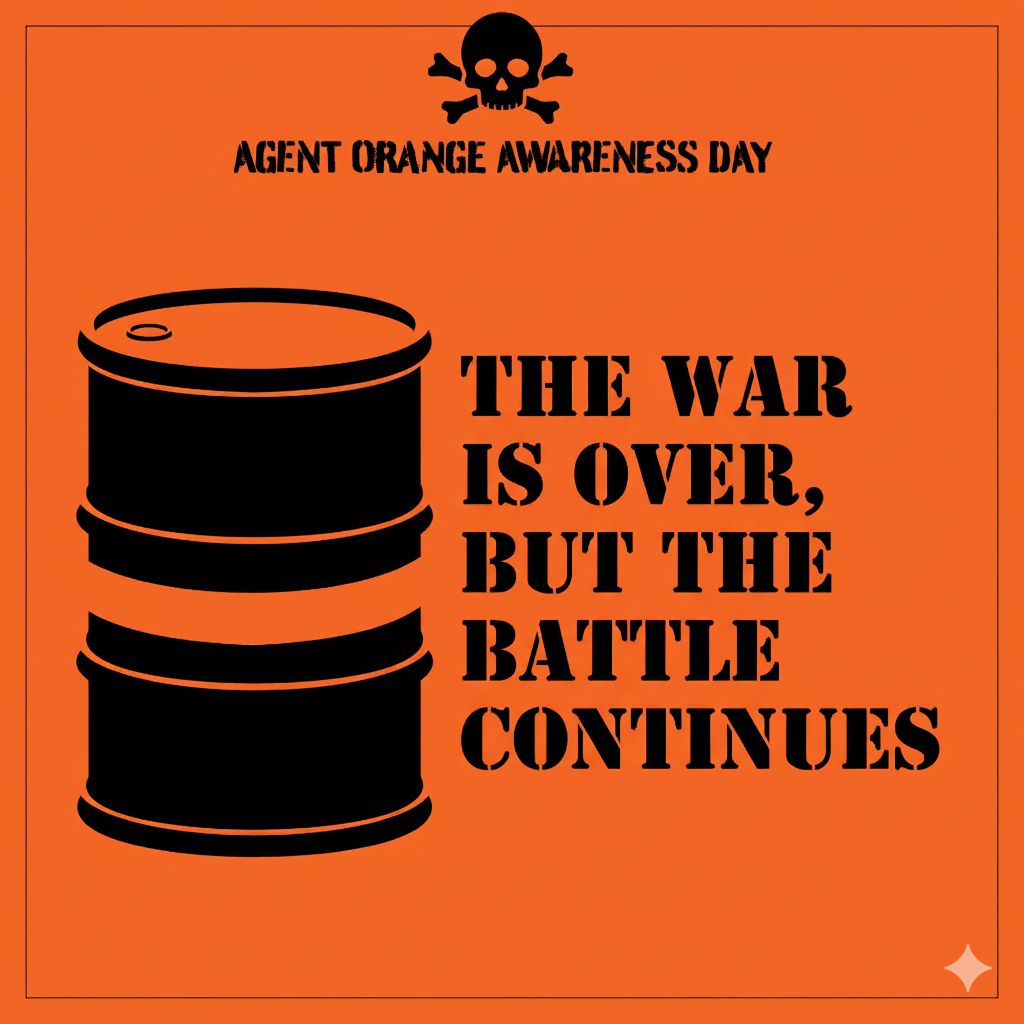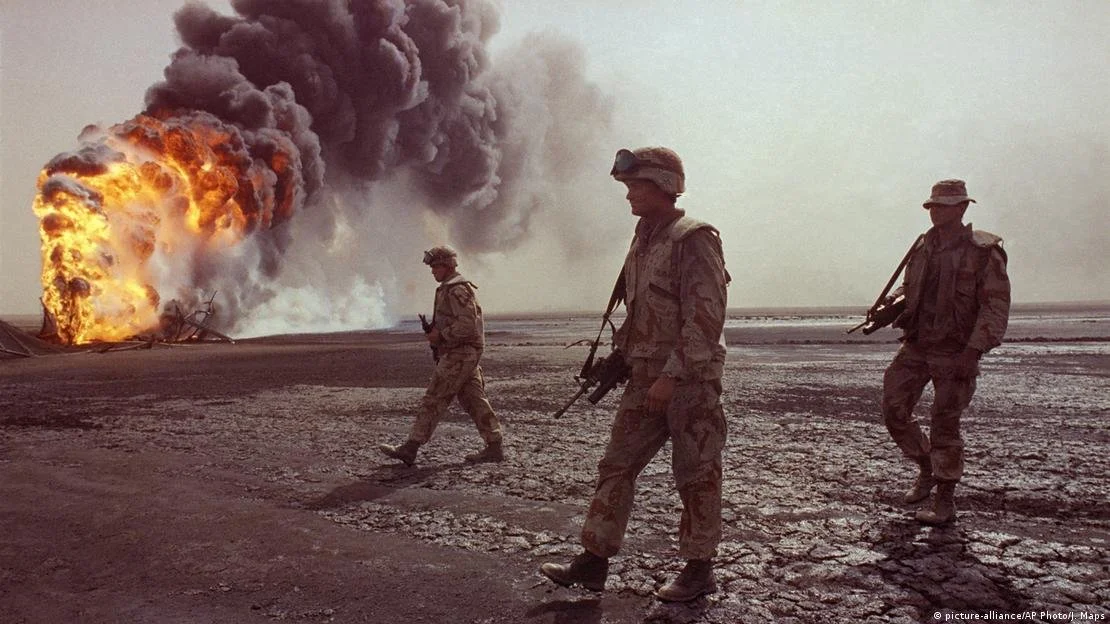Secretary Collins Signs Memo Ending Presumptive Service-Connection for Male Breast Cancer
It seems like the closer we get to 2026, the more my stupid radar has been going off. While the VA has been busy telling you that benefits aren’t effected by the shutdown, despite education benefits not being paid, upper level compensation supervisors being furloughed, and getting "auto replies" from the Board, Secretary Collins has been a busy man it seems. Busy ending presumptive benefits for one of the nastiest diseases—breast cancer, but, just for the men. Ladies reading this, you are apparently safe, for now. With the stroke of a real pen (no autopen used here), Secretary Collins has undone presumptive service-connection for male breast cancer. This doesn’t help empower women—it hurts real Veterans. Cancer doesn’t pick political sides.
War in the Modern Age
Over twenty-five years ago, Senator Thomas Daschle of South Dakota took to the floor of the Senate to make an impassioned argument for extending benefits to the children of Veterans, because their disabilities were (and are) an unintended and unexpected consequence of war in the modern age¹, as the Senator from the Mount Rushmore state would describe it. Likewise, Senator John D. Rockefeller, IV, noted that “[w]ar is changing…We are getting into the century of toxins, of chemicals, we do not have the big Russian bear anymore. We have the little horrendous dictators . . . . They build their little bombs, and their little bombs are not filled with explosives, they are filled with chemicals and toxins that will destroy peoples’ nervous systems. He called the environmental exposures our forces face today as the “toxic hazards of war²”. At home, our forces—Veterans—and their families, still face the hazards of war, both on and off the battlefield. Less than a decade after the end of the Vietnam War, contaminants were found in the water supply at Camp Lejeune³. Additional investigations revealed that the contamination spanned from the 1950s until the mid-1980s⁴.
Trichloroethylene (TCE), perchloroethylene (PCE), and benzene. Other contaminants included vinyl chloride. I may can only pronounce two or three of those, but none sound like chicken noodle soup for the soul. With the literal thousands of people who worked, lived, and were stationed at Camp Lejeune, Congress was faced with the need to care for not just Marines and Sailors who fell ill over the contamination, but also family members. Congress has passed different pieces of legislation to try and address the toxins our Veterans face. Even going so far as to provide benefits for certain children of Veterans with diseases. It seems like every generation of Veterans has a new flavor of death and despair to deal with. The discoveries at Camp Lejeune were not new, nor were they an isolated incident. Veterans have a long history of fighting against nasty chemicals and diseases. Civil War. Gangrene. World War I. Mustard gas. World War II. Asbestos. Vietnam. Agent Orange. Kuwait. Oil Fields. Afghanistan, et. al. Burn pits. Times change, toxins change, but the net effect never does. These different toxins have led to various laws. The Agent Orange Act of 1991, Honoring America’s Veterans and Caring for Camp Lejeune Families Act of 2012, and, most recently, the Honoring Our PACT Act of 2022.
The Promise of the PACT Act
If there is one thing Congress loves, it is the name for a bill. They love to put the word “promise” into any law’s name. The PACT Act is no exception—officially the Promise to Address Comprehensive Toxins Act of 2022. This piece of legislation, to the rare credit of Congress, did a lot of good for Veterans. It expanded locations VA would presume contained Agent Orange (adding Thailand, Laos, Cambodia, Guam, American Samoa, and Johnston Atoll Island).
For our Gulf War and post 9/11 Veterans, it adds a laundry list of diseases subject to presumptive service-connection: Asthma head cancer of any type, neck cancer of any type, respiratory cancer of any type, gastrointestinal cancer of any type, reproductive cancer of any type, lymphoma cancer of any type, lymphatic cancer of any type, kidney cancer, brain cancer, melanoma, pancreatic cancer, chronic bronchitis, chronic obstructive pulmonary disease, constrictive bronchiolitis or obliterative bronchiolitis, emphysema, granulomatous disease, Interstitial lung disease, pleuritis, pulmonary fibrosis, sarcoidosis, chronic sinusitis, chronic rhinitis, and glioblastoma.
Finally, the PACT Act provides similar presumptive conditions for our Camp Lejeune Veterans.
Here is where the story picks up. Did you read that laundry list closely? “Reproductive cancer of any type.” The PACT Act also provided the VA—the Secretary, with discretion to add other diseases the Secretary deems fit as presumptive, based on research and updates in scientific understanding of how these nasty little toxins interact with the human body. In June of 2024, the VA issued a notice in the Federal Register that it was adding three types of cancer for presumptive service-connection. Male breast cancer, urethral cancer, and cancer of the paraurethral glands. According to the VA—at least at that point “This policy establishes presumptions of service connection for eligible Gulf War and post-9/11 Veterans who deployed to Afghanistan, Somalia, Djibouti, Egypt, Jordan, Lebanon, Syria, Yemen, Uzbekistan, and the entire Southwest Asia theater of operations, which includes Iraq. Presumptive service connection means VA automatically assumes service connection for the disease and provides benefits to eligible Veterans who have submitted claims with evidence of a diagnosis.”
Before we get to the boneheaded decision to remove male breast cancer as a presumptive condition, it is worthwhile noting that while the causes of male breast cancer remain widely unknown, the research we do have could not be more clear: male breast cancer is higher among Veteran populations and exposure to chemicals seems to be a leading risk factor for the development of male breast cancer. According to one study⁵, “male breast cancer incidence is rare, veteran status is found to be associated with increased risk, for incidence, a higher prevalence of male breast cancer patients was observed among male veteran prostate cancer survivors.” My, my, my, who do we know that has a high prevalence of prostate cancer? Vietnam era Veterans exposed to Agent Orange—in fact—prostate cancer is a presumptive condition. Another study⁶ discusses that male breast cancer “comprises <1% of all cancers and continues to rise.” Finally, as a doctor friend told me, female breast are NOT an "organ for reproduction" - the female breast, like the male breast, is NOT "directly involved in reproduction." Breasts are "glands", vestigial in human males, but at risk for the same diseases as the female breast. As stated in the Memorandum, breasts (in males and females) are "secondary sex characteristics."
Secretary Collins Reverses Course
According to the memo (apologizes for the bad copy, they are keeping this thing tightly under wraps—but what government agency doesn’t have a leaky faucet?) in February 2023, “VA leadership questioned the equity of the initial interpretation. The Office of General Counsel guidance stated that the phrase "reproductive cancer" was not defined, and the statute’s language was ambiguous. This ambiguity allowed for VA to interpret the term as including both female and male breast cancer.” The memorandum goes on to state that “Executive Order 14168, dated January 20, 2025, Defending Women from Gender Ideology Extremist and Restoring Biblical Truth to the Federal Government, may dispute classifying male breast cancer as reproductive.” Concluding, “Recommended course of action: Remove male breast cancer as a reproductive cancer.”
Signed, dated, and approved by Secretary Douglas A. Collins himself.
Copy of VA memo signed by Secretary Doug Collins.
Wrong is wrong, and nothing in this memo helps empower women. It hurts Veterans, most of whom are males. This memo is a slap in the face to every Veteran who has taken a bath in Agent Orange, slugged down gallons of water at Camp Lejeune, camped out in burning oil fields, or breathed in the nasty fumes from massive burn pits. This memorandum is pure semantics—terms put ahead of Veterans—Veterans with cancer. Does Secretary Collins think there are males out there just begging for breast cancer? This memorandum is particularly loathsome given the only data we do have shows male breast cancer is more common in Veterans and likely due to environmental exposures. To me, what is most shocking isn’t the memorandum itself. Stupid stuff gets drafted and signed all the time in government. Usually, at the end of the day, it comes from a low-level employee who thought they had a good idea. But this—this is authored by the Acting Under Secretary, not some first-year intern. The cherry on top is Secretary Collins putting his John Handcock on it. There is no getting around this one—he approved it—himself—and the buck stops with him, right?
House Committee on Veterans’ Affairs Responds
Committee Letter to Secretary Collins
This memo quickly caught the attention of the House Committee on Veterans’ Affairs, who was quick to respond. “Incidences of male breast cancer, while thankfully rare, have risen in recent years and are increasingly linked to toxic exposure.” “Cancer does not care about ideology, and neither should the agency charged with caring for those who served. The PACT Act is the law — not a suggestion — and it requires VA to follow the evidence.” “. We demand you immediately reverse this decision and restore male breast cancer as a presumptive condition under the PACT Act, as Congress intended.”
Final Thoughts
So, where does this leave us? This decision is the worst kind of bureaucratic betrayal. Secretary Collins, with his own signature, has hurt Veterans. This isn’t about "ambiguity" in the law; it’s about playing semantic games with a nasty cancer that harms the very people the VA is tasked to serve. The PACT Act was supposed to be a promise, not a political football to be fumbled around, administration to administration. We have the science. We have the data linking toxic exposure to male breast cancer in Veteran populations. Yet, the Secretary has chosen to ignore it all in favor of a memo that reads more like a partisan high-five than a science-driven policy decision. This is a slap in the face not just to the men suffering from this disease, but to every Veteran who has ever had to fight the VA for benefits they earned through their service and sacrifice. The House Committee is right to be outraged—we all should be. This decision is shameful, and it must be reversed immediately. Cancer doesn’t pick sides, but it seems Secretary Collins already has.
I don’t play politics when it comes to protecting “those who have been obliged to drop their own affairs to take up the burdens of the nation.⁷” Wrong is wrong, D or R beside your name, and I will always chose to remain true to my beliefs above any party. Our Nation’s Veterans deserve this, anything less is not only insulting, but beneath the dignity of the Secretary and those he is tasked to serve— “to care for him who shall have borne the battle.”
Godspeed.
Footnotes
See 42 Cong. Rec. S9878-79 (daily ed. Sept. 5, 1996) (statement of Sen. Thomas A. Daschle).
See id at S9885 (statement of Sen. John D. Rockefeller, IV).
See Veterans Benefits Admin., Dep’t of Veterans Affairs, Processing Disability Claims Based on Exposure to Contaminated Drinking Water at Camp Lejeune, Training Letter 11-03 (Revised) (Nov. 29, 2011).
See Veterans Benefits Admin., Dep’t of Veterans Affairs, Environmental Hazards in Iraq, Afghanistan, and Other Military Installations, Training Letter 10-03 (Apr. 26, 2010).
Whyne EZ, Choi SH, Unni N, Kanjwal S, Dowell JE, Jeon-Slaughter H. Factors Associated With Male Breast Cancer Incidence Among Prostate Cancer Survivors: Real World Evidence From Veterans Affairs National Prostate Cancer Data Core. Prostate. 2025 Oct 8. doi: 10.1002/pros.70074. Epub ahead of print. PMID: 41063384.
Aggarwal A, Adepoju B, Yacur M, Maron D, Sharma MC. Gender Disparity in Breast Cancer: A Veteran Population-Based Comparison. Clin Breast Cancer. 2021 Aug;21(4):e471-e478. doi: 10.1016/j.clbc.2021.01.013. Epub 2021 Jan 26. PMID: 33619003.
See Boone v. Lightner 319 U.S. 561, 575 (1943).






